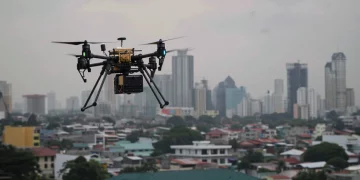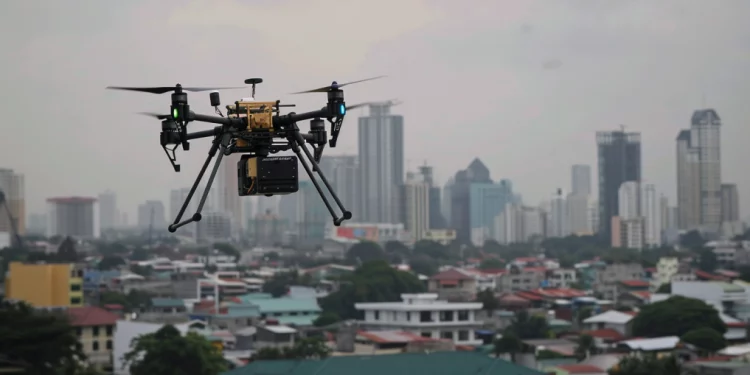The bustling skies of Manila, Philippines, are witnessing a pioneering experiment – a drone delivery trial spearheaded by logistics giant DP World and technology company, AirAsia Philippines. This initiative marks a significant step towards integrating drones into congested urban airspaces for faster and more sustainable deliveries within city limits.
Addressing Urban Delivery Challenges:
Traditional last-mile delivery solutions in densely populated cities like Manila face numerous challenges, including traffic congestion, limited parking options, and rising fuel costs. Drone delivery offers a potential solution, promising faster delivery times and reduced environmental impact compared to traditional methods.
A Controlled Experiment:
The initial phase of the trial focuses on short-range deliveries within a designated area near Ninoy Aquino International Airport (NAIA) in Manila. This controlled environment allows for rigorous testing and monitoring of drone operations under the watchful eyes of the Civil Aviation Authority of the Philippines (CAAP).
Safety First:
Safety is paramount in this trial. The drones utilized are equipped with advanced safety features, including autonomous obstacle avoidance and redundant communication systems. Additionally, the designated airspace for the trial is carefully selected to minimize disruption to existing air traffic.
Benefits and Potential:
This drone delivery trial carries the potential to revolutionize urban logistics in Manila and beyond. Here’s a glimpse into the potential benefits:
- Faster Deliveries: Drones can navigate congested city streets and bypass traffic jams, potentially delivering goods within minutes rather than hours.
- Reduced Emissions: Drone deliveries, particularly when utilizing electric models, can contribute to a more sustainable urban transportation ecosystem.
- Access to Remote Areas: Drones can potentially reach locations that are difficult or inaccessible for traditional delivery vehicles.
Challenges and Considerations:
Despite the exciting possibilities, some challenges remain:
- Regulation: Clear regulations and frameworks are necessary to govern the safe and efficient operation of drones within urban airspaces.
- Public Perception: Addressing public concerns about noise pollution and privacy remains crucial for wider acceptance of drone deliveries.
- Technical Limitations: Battery life and payload capacity limitations of current drones need advancements for wider applicability in urban deliveries.
A Glimpse into the Future:
The drone delivery trial in Manila represents a bold step towards the future of urban logistics. By overcoming challenges and refining technology, drone deliveries have the potential to become a commonplace sight in bustling cityscapes, transforming the way goods are delivered within urban environments. As the trial progresses and data is gathered, the industry will be closely watching the results to assess the feasibility and potential of drone delivery solutions for broader adoption in the years to come.























